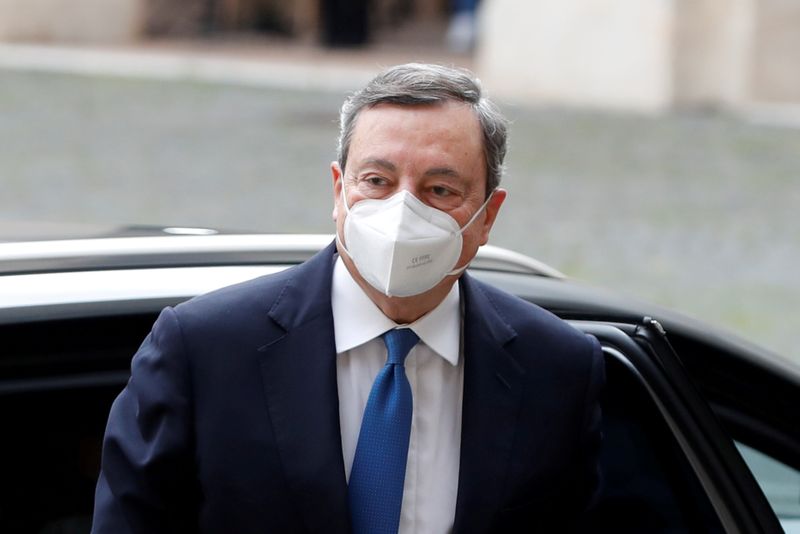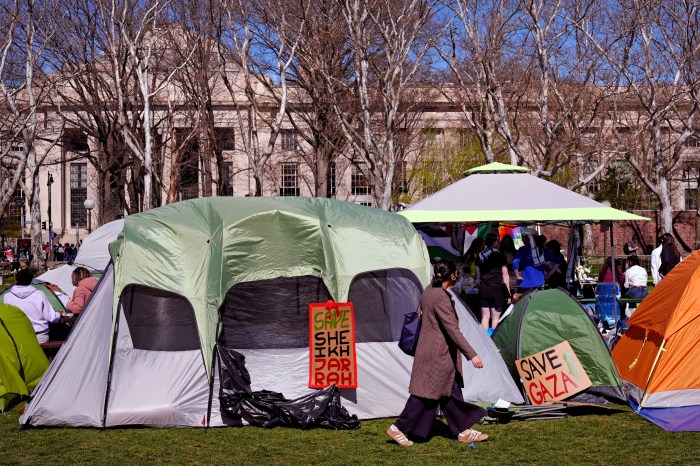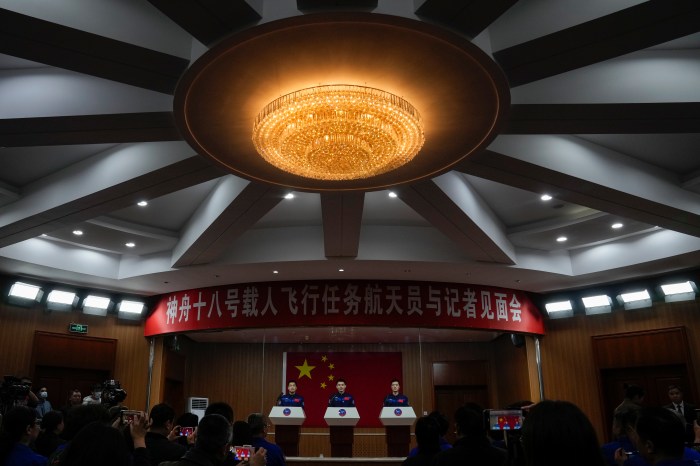ROME (Reuters) – If Italy’s prime minister-designate Mario Draghi gets his government off the ground, he will have to confront several thorny problems that – in previous jobs – he had a role in creating.
Draghi, a former European Central Bank chief, is feted in Italian media as a national saviour and parties who have fought each other for years now want to join forces in his coalition, but his record has shadows as well as light.
Resurrecting the Italian economy, the most chronically sluggish in the euro zone, will be his top priority, but he will also have big corporate headaches to resolve, from the plight of the world’s oldest bank to that of Italy’s main road-toll operator.
On all these fronts, Draghi the prime minister will have to untangle knots tied in past years by Draghi the Italian Treasury chief and Draghi the ECB president.
That raises questions about how he will proceed.
With billions of euros to spend from the European Union Recovery Fund, Draghi will doubtless initially show no trace of the austerity he once promoted, but how will he approach negotiations to rewrite the EU’s budget rules? And will he proceed with Rome’s plans to nationalise the motorways that he himself privatised as Treasury director general in the 1990s?
A popular meme on social media in Italy sums up the Draghi enigma.
It pictures him with a raised hand and the caption “this hand can be Friedman, or it can be Keynes”, referring to the economists Milton Friedman, who famously espoused free markets, and John Maynard Keynes who championed state intervention.
“Draghi is above all a pragmatist,” said Mauro Gallegati, an economics professor at Marche University. “He used to be all about austerity, market forces and privatisations. Now he is in a transition from Friedman to Keynes.”
Draghi’s plans for a ministry for ecological transition suggest a strong role for the state in tackling climate change, something Friedman and probably the Draghi of the 1990s would have wanted left to the market.
ECB LETTER
Draghi has made no public comments on his policy plans. He was not available to comment on this article.
Even before COVID-19 plunged Italy into its steepest post-war recession, the country had barely grown for two decades.
Its many problems range from an ageing, shrinking workforce to a lack of public investment and a cloying state bureaucracy.
Yet a growing number of economists agree the austerity measures that Draghi upheld as ECB chief alongside other EU institutions exacerbated those difficulties, weakening Italy’s production capacity and crimping its growth potential.
Just ahead of his eight-year tenure as ECB president in 2011 Draghi was co-signatory to a letter to the Italian government calling for spending cuts and accelerated deficit reduction.
That year, Italy’s potential growth – measuring the cruise rate at which the economy can grow without generating inflation – was calculated by the International Monetary Fund at 0.7% and estimated to remain stable for the next five years.
Two years later, after draconian budget curbs and deep recession, the IMF’s estimate had fallen to -0.3%, and was projected to remain below 0.5% for the next four years.
In 2012 Draghi, along with the European Commission, was a promoter of the “Fiscal Compact”, which toughened the terms of the EU’s Stability Pact by imposing faster fiscal consolidation for high debt countries like Italy.
However, despite running a tight budget, Italy’s debt continued to grow as a proportion of output because the economy either shrank or stagnated. By 2014, the debt-to-gross domestic product ratio had risen to 132% from 116% in 2011.
“I think they realised what they did to southern Europe was a mistake, nobody was talking about austerity anymore even before the coronavirus hit,” said Roberto Perotti, an economics professor at Milan’s Bocconi University.
SAVING MONTE PASCHI
As governor of the Bank of Italy in 2008, Draghi approved the purchase by centuries-old bank Monte dei Paschi di Siena (MPS), Italy’s third largest, of rival lender Antonveneta at an inflated price that analysts say contributed to its financial meltdown.
He was also responsible for its oversight while MPS took out derivative contracts that undermined its accounts.
Italy owns 64% of the bank after a 2017 bailout that cost taxpayers 5.4 billion euros. It has promised the European Commission that it will exit by mid-2022.
Draghi was ECB chief in mid-2017 when it declared MPS was solvent, clearing the way for the European Commission to authorise the bailout.
The Treasury is now trying to find a buyer for the bank, a task that will fall to Draghi as prime minister.
On Wednesday, MPS reported 2020 results showing its annual loss had soared to 1.7 billion euros ($2.06 billion).
FROM PRIVATISER TO NATIONALISER?
Draghi will also have to decide whether to complete the nationalisation of Italy’s largest toll road operator, Autostrade per l’Italia (ASPI), whose privatisation he organised as Treasury director general in the 1990s.
The privatisation terms are now widely criticised for having created a virtual private monopoly, with huge profits for the buyer – the Benetton family.
The sell-off was in the spotlight again after the 2018 collapse of a bridge in Genoa, killing 43 people. Prosecutors say the disaster was mainly caused by scant investment in maintenance despite the company’s massive profits.
ASPI and its holding company Atlantia deny all wrongdoing.
“The ASPI privatisation was a great deal only for the buyer, to the detriment of road-users and the taxpayer,” said Massimo D’Antoni, an economics professor at Siena University.
The ASPI operation was just one of a raft of sell-offs organised by Draghi, including the bank MPS, some of which failed to create prosperous companies.
“We have to recognise that Draghi was in charge of a privatisation drive that didn’t go too well,” said Marche University’s Gallegati, adding that he believed Draghi would proceed with the re-nationalisation of the motorways.
($1 = 0.8235 euros)
(Editing by Frances Kerry)



















